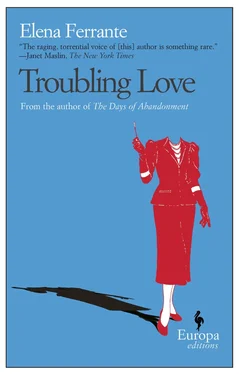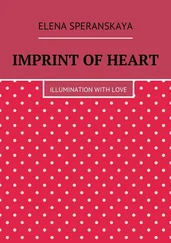The gas burned in the night on the tops of the refineries. I was traveling on a local train slow as a death, having looked for and found a lighted compartment, without sleeping passengers. I wanted if not the entire train at least my seat to maintain its solidity. I found a place with some boys in their twenties, recruits returning from a short leave. Speaking an almost incomprehensible dialect, they displayed in every phrase a frightened aggressiveness. They had missed the train that would have got them to the barracks on time. They knew they would be punished and were afraid. But they wouldn’t confess it. Instead, with shouts and sneers, they imagined subjecting the officers who would punish them to sexual humiliations of every type. They placed these in an indeterminate future and, in the meantime, described them exhaustively. They declared, addressing me, but obliquely, that they weren’t afraid of anyone. Every time, their glances became bolder. One of them began to speak to me directly and offered me beer from the can he had been drinking from. I drank some. The others, their bodies contracted by stifled laughter, pressed together, and then, turning purple, pushed each other away.
I left them at Minturno. I walked to the Appian highway, through deserted streets, among empty ordinary bungalows. It was still dark when I succeeded in finding the house of our holidays, a two-story structure with a sloping roof, locked up and silent in the dew. As soon as it was light I set off on a sandy path, populated only by beetles and motionless lizards, waiting for the early warmth. The reeds with which I had made kite frames for my sisters and me wet the suit as I grazed them.
I took off my shoes and sank my aching feet into the fine sand, which was cold and dirty, strewn with debris of every sort. I sat on the trunk of a tree near the shore, waiting for the sun to warm me, but also to attach my presence to some object solidly rooted in the sand. The sea now was calm and blue under the sun, but the rays came just to the water’s edge, leaving the sand in a gray shadow. A thin mist that would soon evaporate was still hiding the stubble fields, the hills, the mountains. I had already returned to that place, after my mother’s death. I had seen neither the sea nor the beach. I had seen only details: the white shell of a conch, with its regular striations; a crab with sections of its abdomen turned to the sun, the green plastic of a detergent bottle; that trunk I was sitting on. I had asked myself why my mother had decided to die in that place. I would never know. I was the only possible source of the story: I couldn’t nor did I want to search outside myself.
When the sun began to touch me, I heard Amalia, who was young and full of amazement at the appearance of the first bikinis. She said: “You could hold both pieces in one hand.” She, however, wore a green costume that she had made herself, high-necked, sturdy, intended to suffocate shapes, and over the years it remained the same. Prudently she often checked to be sure that the fabric wasn’t riding up on her thighs or her buttocks. On Sundays, apparently by choice, she would be wrapped in a towel as if she were cold, on a beach chair under the umbrella, beside my father. But she wasn’t cold. On holidays groups of curly-haired boys arrived at the beach, from inland, in indecent bathing suits, faces, necks, and arms burned by the sun, white everywhere else, noisy, quarrelsome, fighting furiously on the sand or in the water, sometimes in fun, sometimes seriously. My father, who generally spent the time at the water’s edge, eating clams dug out of the sand, when he saw them changed mood and attitude. He ordered Amalia not to leave the umbrella. He watched her to see if she glanced at them out of the corners of her eyes. When the boys came too close to the umbrella in the course of their games, laughing, and sandy up to their hair, he quickly joined us and compelled us all four to stay near him. Meanwhile with fierce looks he declared war on the youths. We, as always, were afraid.
But what I remembered with greater dismay about those holidays was the outdoor movies, where we went often. My father, to protect us from possible annoyance, made the youngest of my sisters sit in the first seat in the row, the one on the center aisle. Then he ordered the next to sit beside her. I followed, then my mother, finally him. Amalia had an expression between amused and admiring. But I interpreted that arrangement of seats as a sign of danger and became more and more anxious. When my father sat in his place and put an arm around the shoulders of his wife, the gesture seemed to me the ultimate fortification against an obscure threat that would soon be revealed.
The film would begin but I felt that he was not calm. He watched nervously. If by chance Amalia turned to look behind her he immediately did so, too. At regular intervals he asked her: “What’s wrong?” She reassured him but my father didn’t trust her. I was influenced by his anxiety. I thought that if something happened to me — something terrible, I didn’t know what — I would be silent about it. I deduced, I don’t know why, that Amalia would behave the same way. But this knowledge made me even more fearful. Because, if my father had discovered that she had hidden from him the attempt of some stranger to approach, he would immediately have the proof of all Amalia’s other innumerable assents.
I already had those proofs. When we went to the movies without him, my mother didn’t respect any of the rules that he imposed: she looked around freely, she laughed as she wasn’t supposed to laugh, and chatted with people she didn’t know, for example with the candy seller, who when the lights went out and the starry sky appeared sat down next to her. So when my father was there I couldn’t follow the story of the film. I glanced around furtively in the darkness to exercise, in my turn, control over Amalia, to anticipate the discovery of her secrets, to keep him, too, from discovering her guilt. Amid the smoke of cigarettes and the glow from the band of light emitted by the projector, I fearfully imagined bodies of men in the shape of frogs who jumped agilely under the rows of seats, extending not paws but hands and sticky tongues. So in spite of the heat I was covered with an icy sweat.
But when her husband was there Amalia, after a stealthy look sideways, curious and yet apprehensive, let her head fall on my father’s shoulder and appeared happy. That double movement tortured me. I didn’t know where to follow my mother in flight, if along the axis of that glance or along the parabola that her hair made in the direction of her husband’s shoulder. I was beside her, trembling. Even the stars, so thick in summer, seemed to me points of my confusion. I was to such an extent determined to become different from her that, one by one, I lost the reasons for resembling her.
The sun began to warm me. I dug in my purse and took out my identification card. I stared for a long time at the photograph, studying myself in search of Amalia in that image. It was a recent photo, taken when I renewed the document. With a pen, as the sun burned my neck, I drew around my own features my mother’s hair. I lengthened the short hair, moving from the ears and making two broad bands that met in a black wave, over the forehead. I sketched a rebel curl over the right eye, barely contained between the hairline and the eyebrow. I looked at myself, smiled at myself. That old-fashioned hairstyle, popular in the forties but already rare at the end of the fifties, suited me. Amalia had been. I was Amalia.
The writer who calls herself Elena Ferrante was born in Naples; though one of Italy’s most acclaimed contemporary authors, she has shunned public attention and kept her identity a mystery. Troubling Love is the second novel by Elena Ferrante to be published by Europa Editions. The Days of Abandonment, described by The New Yorker as “a deeply observed, excruciatingly blunt novel,” came out in 2005.












